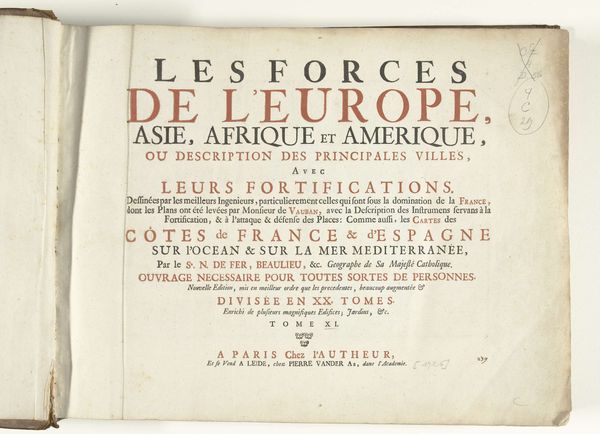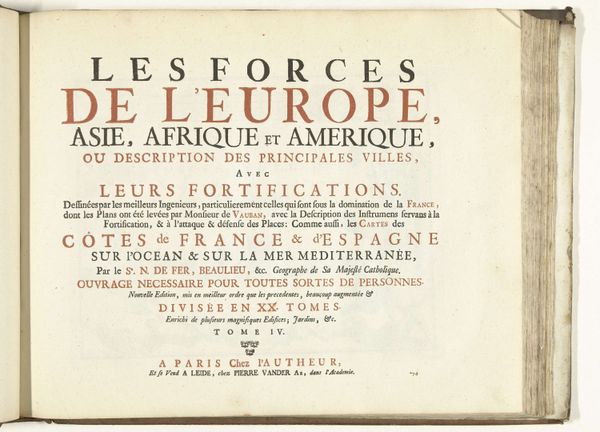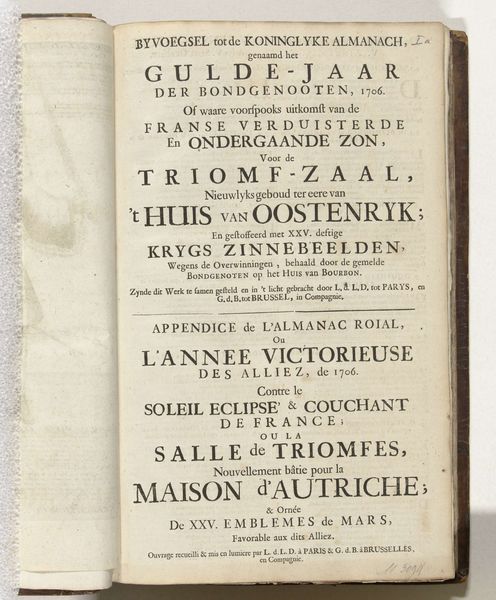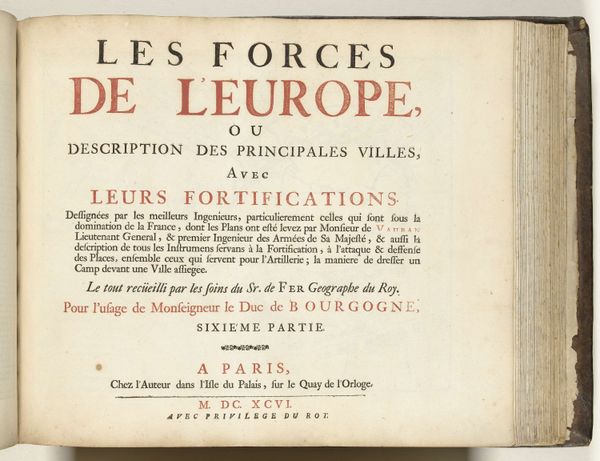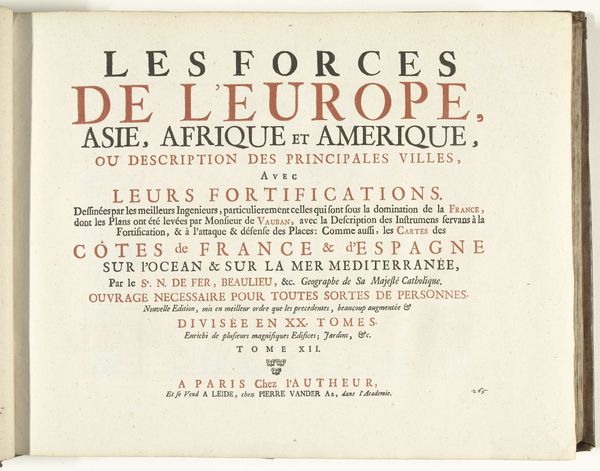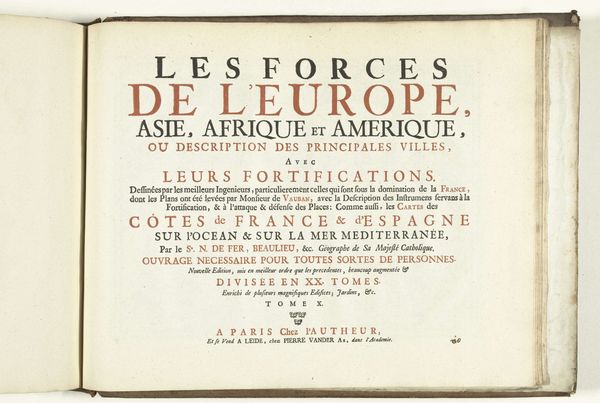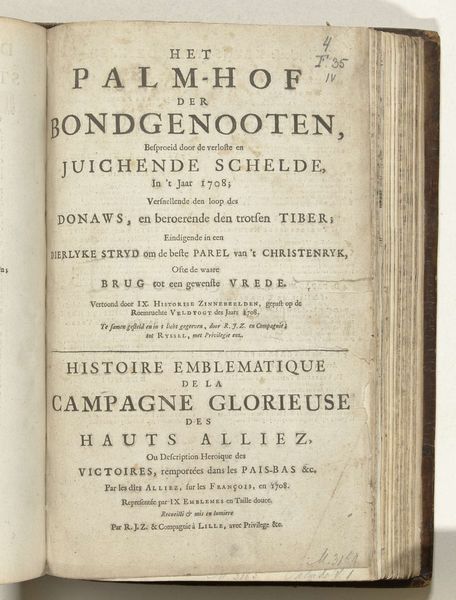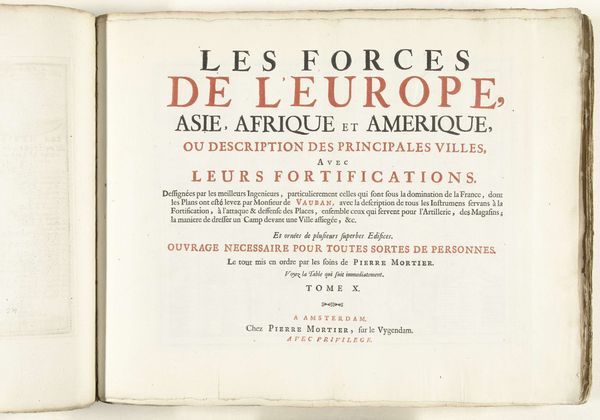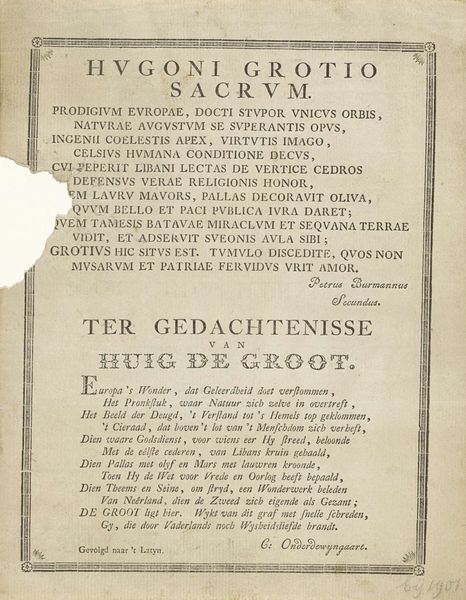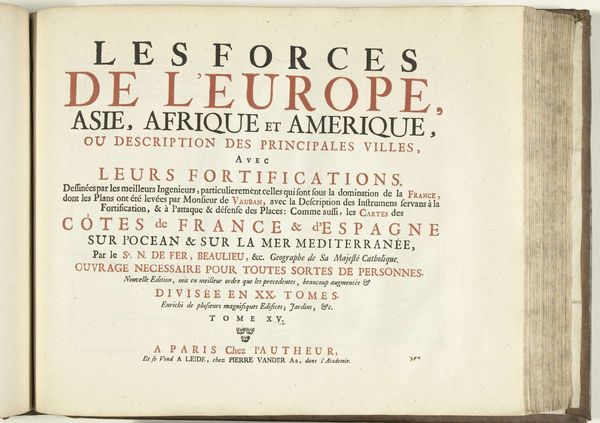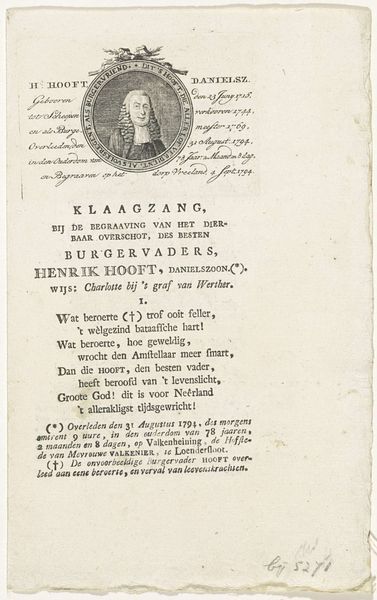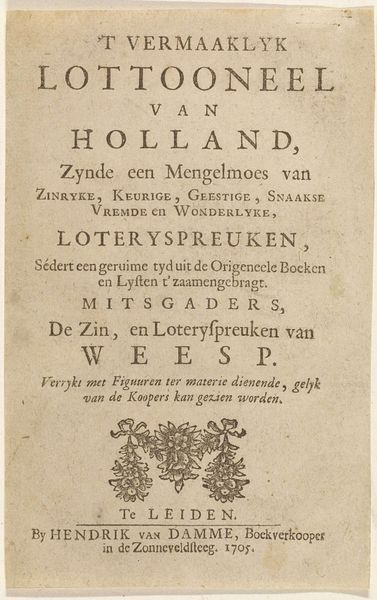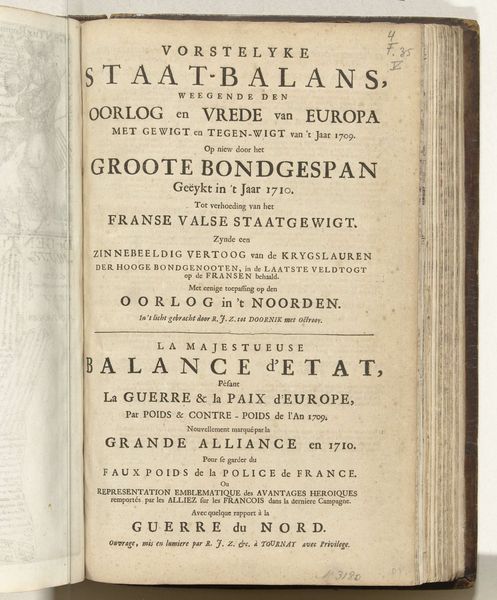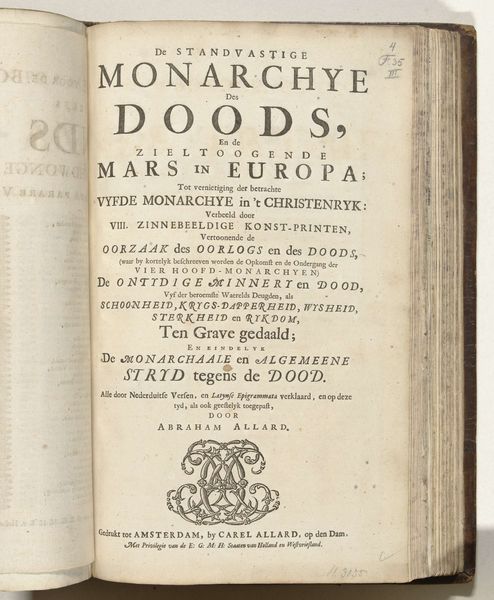
print, textile, typography
#
baroque
# print
#
textile
#
typography
#
historical font
Dimensions: height 315 mm, width 200 mm
Copyright: Rijks Museum: Open Domain
Curator: Here we have a title page for the "Koninglyke Almanach," or Royal Almanac, published in 1706. It’s by Carel Allard and is currently held at the Rijksmuseum. Editor: It feels very much of its time, doesn't it? So densely packed with text, a very busy layout for a title page. It also somehow looks both formal and immediate, like newsprint of its day. Curator: Yes, the typography really gives it that sense of urgency and authority. Almanacs like this served multiple functions; they were calendars, astrological guides, and also provided political commentary. Note how the Dutch and French titles echo each other, a marker of the political landscape. Editor: The combination of typography and what appears to be paper, or perhaps even woven textile through the print—you can almost feel the pressure of the press used in its making. It's fascinating to consider the labour involved in such a widely disseminated printed matter. How do historians see this work in terms of craft? Curator: That's a crucial point. Allard, and publications like this, represent a burgeoning industry. The accessibility of print facilitated a wider public engagement with politics, philosophy, and culture, contributing to evolving notions of citizenship and national identity. The printing trade created communities and shaped public opinion through controlled distribution channels. Editor: The notion of “helpend-virtues” as advertised must've been something desirable given the content's popularity; yet seeing it as craft really demystifies such claims, as it was mass produced like most things printed on paper Curator: Exactly, and it’s easy to look past the material conditions to which print speaks. Thank you, your approach reveals the historical importance by exposing these printed pages not only for what it said, but also what enabled these prints. Editor: Thanks! Seeing it as a form of material labor helps one remember such titles that might usually be only reserved for scholarly historical accounts or political debates.
Comments
No comments
Be the first to comment and join the conversation on the ultimate creative platform.
